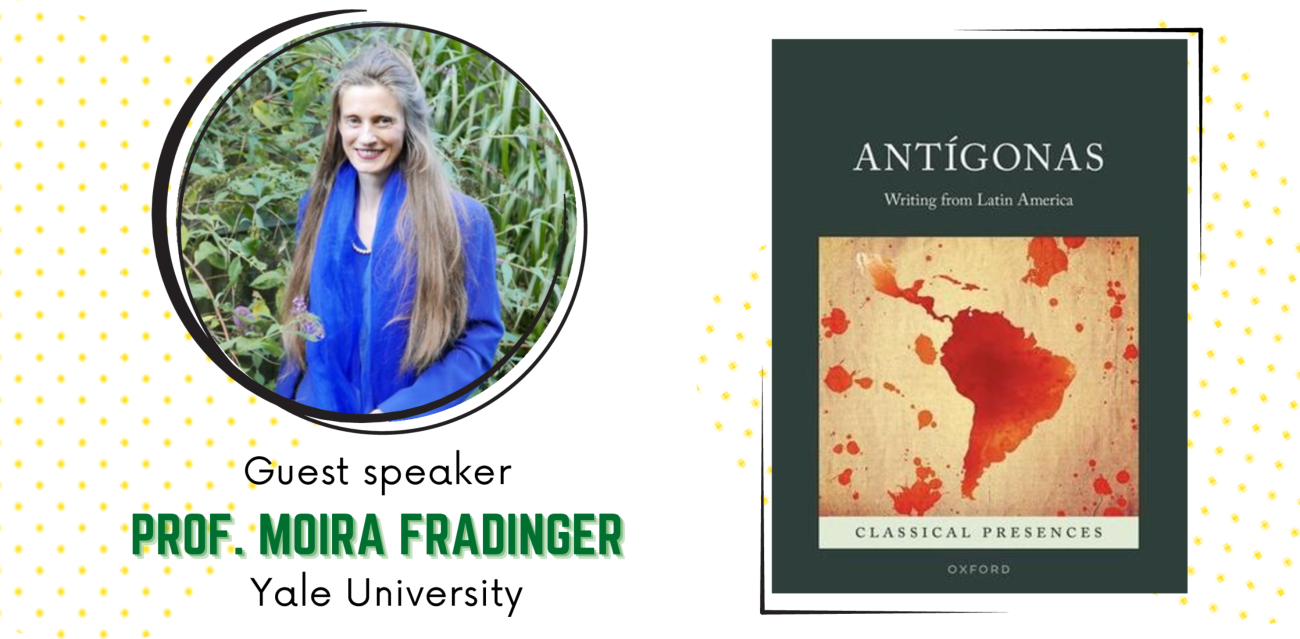
Yale Professor Moira Fradinger will be presenting "A Decolonial Reading: The Case of Latin American Antígonas" on Friday, October 18, 2024. The event will be held 3–5 p.m. in 182 Lillis Hall, 955 E 13th Ave, University of Oregon.
Fradinger is Associate Professor in the department of Comparative Literature at Yale University. She is the author of Antígonas: Writing From Latin America (Oxford University Press, 2023), the first book in the English language to approach classical reception through the study of one classical fragment as it circulates throughout Latin America. This interdisciplinary research engages comparative literature, Latin American studies, classical reception, history, feminist theory, political philosophy, and theatre history. Fradinger tracks the ways in which, since the early nineteenth century, fragments of Antigone's myth and tragedy have been persistently cannibalized and ruminated throughout South and Central America and the Caribbean, quilted to local dramatic forms, revealing an archive of political thought about Latin America's heterogeneous neo-colonial histories. Antígona is consistently characterized as a national mother and, as the twentieth century advances, multiplied on stage, forming female collectives, foregrounding the urgency of systemic change or staging gender politics.
Through meticulous examination of classical culture in necolonial contexts, Fradinger explores ways of reading Creole texts from the geopolitical South that disrupt the colonial reading protocols that deracinate texts or lock them into locality. By historicizing Antígona plays and interpreting them with a purpose to address specific colonial legacies, the book reveals how Antígona has ceased being Greek and instead tells stories of twentieth- and twenty-first-century Latin America. Antígonas rethinks the paradigms through which we understand the presence of ancient cultural materials in former colonial territories, while illuminating an understudied continent in Anglophone reception studies.
Sponsored by the Center for the Study of Women in Society and Department of Romance languages. Co-sponsored by the Center for Latino/a and Latin American Studies, Oregon Humanities Center, and the departments of Theater Arts and Comparative Literature.

